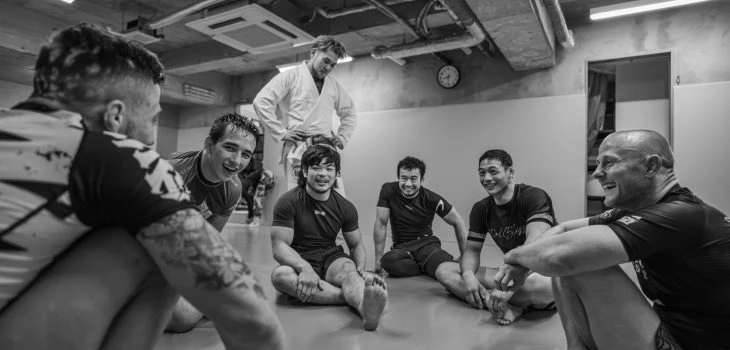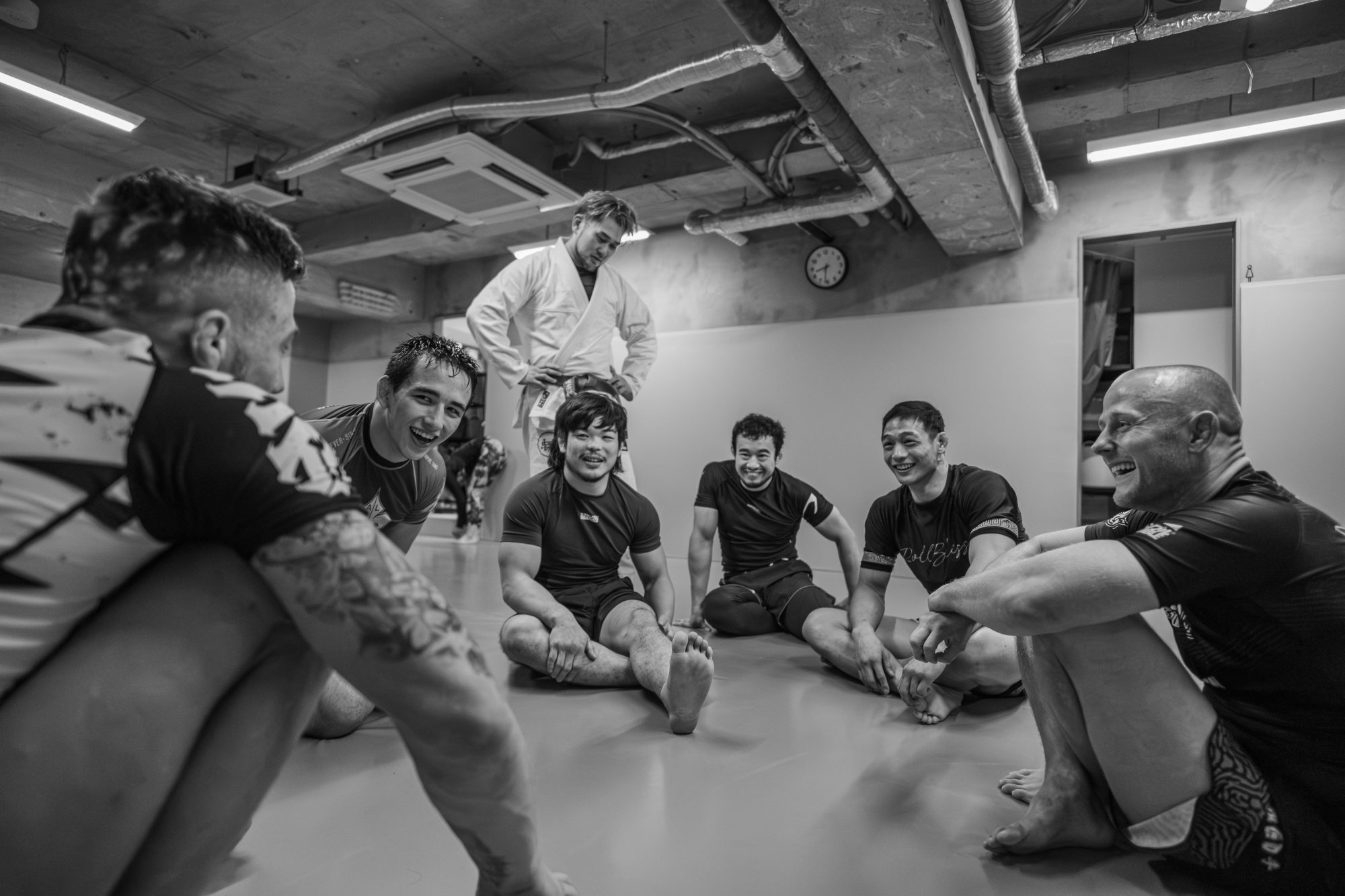 Scramblog
Scramblog What Does it Mean to Tap?

Yes, a whole article about tapping. Tapping is a simple mechanic in jiujitsu – it signifies giving up. But, it is often one of the most important things you can do in the sport. Tapping in a world championship could mean the difference between being a World Champion, and not. It could be the difference between a broken leg, or not. It could mean everything to you, and nothing to the next person. This is a deep dive into what it means to tap in jiujitsu.
Tapping is, for us now, considered to be an obvious and essential part of the sport, but it wasn’t always that way. There is no tap in other comparable combat sports. I am not sure at what point in the jiujitsu / judo tradition that it became a key part of training, but it changed the art drastically. A tap enables you to go full power until, theoretically, the moment just before injury, when you can safely give up. A genius idea that improved training efficiency immensely.
I have known people who count every tap in training, both for and against. A tap against them is mentally noted down and must be avenged, and a tap on that person is a victory. For me, personally, having trained for almost 20 years, I have been through every emotion there is regarding a tap – anger, frustration, apathy, and ultimately, disconnection.
First, let’s address the most obvious tap – one in competition. Yes, that means you have lost. There are not many ways to sugar coat this tap – it means your opponent beat you. You can argue that it’s a type of learning, but when competing, the goal should be to win. So it’s a loss, plain and simple. You can of course learn from it, but this tap signifies that you lost.
I am more interested in the taps that happen in training, and how we can better learn to process them. Here are some reasons why you might be tapping in training and how you can learn from it. Some new ways to frame what a tap means. It’s also worth noting that some of the greatest minds in jiujitsu – such as Jon Danaher – say that tapping is essential in training. Training is a place to experiment and learn new skills and as such, tapping may happen frequently. Garry Tonon said he taps out all the time in training.
Your partner is better than you, in every way.
There are certain people who are just better than you, and that’s a fact. You might have been training longer than them, but they might just be better than you regardless. They may be stronger, have a better understanding than you, a wider range of moves than you, or maybe they train a lot more frequently than you – or maybe all of the above. If they tap you, it’s because they are better than you. How do you process this? Acceptance. Try to do a little better each time, or extend the time between taps as much as possible. Work on your defence. Work on tightening up your game and not making mistakes. But do not get frustrated – they are simply better than you at this particular thing, and that’s fine.
You made a mistake in the preceding minutes.
Sometimes when training, I move in a certain way, and then know immediately that I have made a mistake. Me tapping is now highly likely, and often happens. I will tap and then reset, and try to think about what I did wrong, and try not to do it again. It doesn’t mean you suck at jiujitsu, or that the other person is better than you, necessarily. It just means that in that moment you made a mistake. You zigged when you should have zagged, you kept a grip for too long or not long enough, etc. How should you deal with this kind of tap? Acceptance, and move on.
You are trying something new
This should be the most common tap. You are working on something new, and it’s taking a while to stick. This results in mistakes, which lead to taps. And that is totally fine. The key is going into the rounds with the mentality that you are working on something, and you may suffer while doing so. Try not to get frustrated, and don’t count the taps. Keep trying the moves, adjust them a little each time, notice what is going wrong and attempt to correct it. My current timelines for adding a technique to my regular arsenal is in six month chunks. That’s how long it takes me personally to get comfortable with a move, and there are a LOT of taps in those six months. What is the attitude to this tap? You should welcome it. It is valuable data for you to use to improve your game.
You allowed someone to work
This can happen a lot. You might allow someone to work – they might be smaller, or a lower rank than you, so you give them some breathing room. But they train a lot more than you, or they are just getting good, and you tap. It happens! I often use rolls with smaller or lower ranked people to work on my weakness or my defence, and sometimes it backfires and they tap you. Who cares? You went into the round with the mentality to allow someone to work, and they worked. Acceptance, move on. Of course, there may be smaller, lower ranked people, who are also just better than you. This is a reality, and again, acceptance is key.
You are not on top form.
You could be tired. Overworked. Recovering from illness. About to be ill. Whatever the reason, you are not at 100% and you may tap more than usual, or tap to things (or people) that you would not normally tap to, and this, too, is fine. Accept it, understand why it is happening, move on. Do not make excuses. Your training partner does not need to hear that you are very tired, or whatever. I repeat – do not make excuses out loud. You can think to yourself about how you feel like shit, but don’t project it onto your training partners. Accept the tap and move on.
When not to tap?
Of course, if you are a hardened competitor, all this tapping and acceptance talk may sound like the kind of thing a loser would say (and maybe you forgot the bit I said at the beginning about Jon Danaher and Garry Tonon talking about regular tapping) and that’s fine. You – and I – could approach a round with the mentality of not tapping, and you could probably be pretty successful with it, but I guarantee, the only thing that may improve from this type of training is likely to be your physical toughness (which can be an important asset.) I am certain you would be tense as a rock, hesitant to try anything new, and your training partner would not enjoy the round. I have been guilty of this sometimes, but not for a while. We have a few people at the gym that I tap to fairly regularly, but if I really wanted to, I could avoid the tap — but I would not learn from the roll, and I doubt it would be very enjoyable.
Having a few mutually agreed upon competitive rounds where you simulate a competitive environment – where you don’t want to tap – is of course a valid way of training, BUT the same rules apply. By all means hold out as long as possible, do your best to make no mistakes – but once the tap is made, accept it and move on.
I suppose the key takeaway here is not to overthink the tap and especially not to worry about who did it to you, and bring the focus back to training. Tapping is just a brief moment for you to reflect on something you did wrong, and maybe what your partner did right, and that’s it. It’s not something to keep track of, to ruminate on, or basically, to stress about. The tap does not matter*, learning from it does.
*Except when competing. Then it matters!